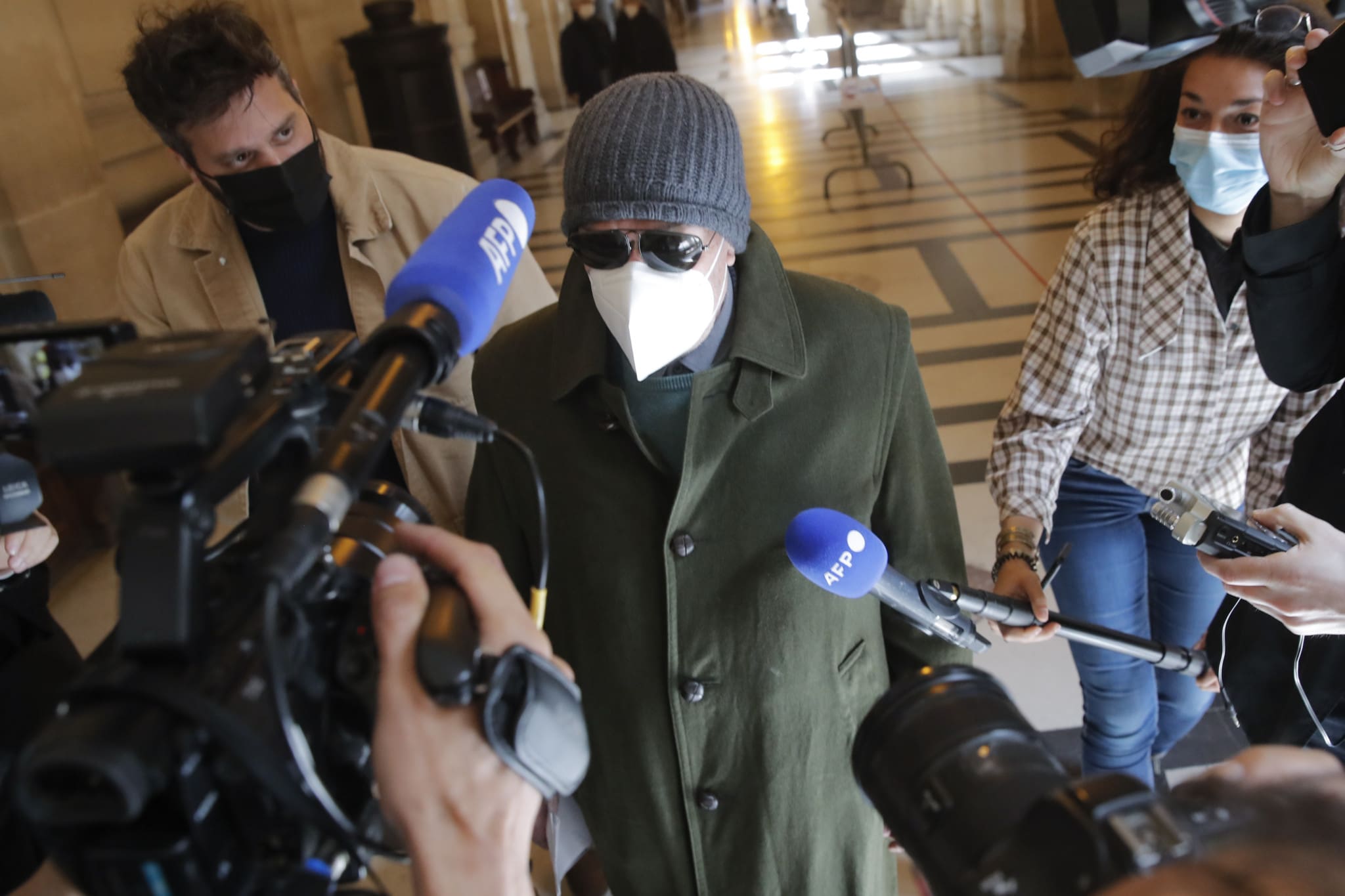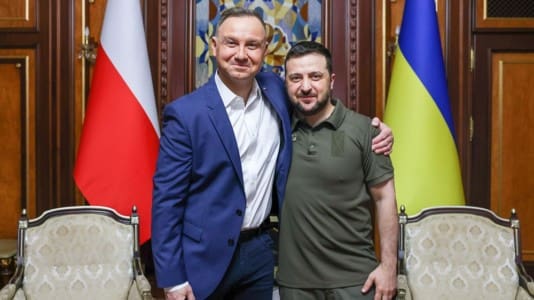Over the past decade, France’s successive left-wing governments have banned or harassed right-wing organizations and individuals without giving evidence that they had resorted to violence or broken the law in any other way.
On the left, however, it has only just begun to act similarly toward violent and law-breaking far-left organizations. The country’s current interior minister now realizes that the authorities are losing control over those groups that had been so useful in making the Yellow Vests protests and other initially peaceful protest movements turn ugly and discrediting them in the eyes of the general public; this is how they then justified police violence of a kind unheard of in other EU countries.
Concerning France’s record of giving shelter to Italian left-wing terrorists, it must be said that Emmanuel Macron himself supported an end to the “Mitterrand doctrine.” Named after François Mitterrand, the Socialist party leader who was the president of France from 1981 to 1995, that doctrine, which was based on a simple pledge made orally by President Mitterrand in 1985, meant that France would not extradite to Italy far-left activists even if condemned in their country for violent acts committed during the “Years of Lead.”
The “Years of Lead” is the name given to a period of political violence in Italy that lasted from the late 1960s until the late 1980s. One of its culminating points was the kidnapping and later assassination of former Prime Minister Aldo Moro by the Red Brigades, a Marxist-Leninist terrorist organization. The bloodiest event was a bomb attack by neo-fascist terrorists that killed 85 people and injured another 200 at Bologna’s central railway station on Aug. 2, 1980.
The right-wing terrorists and violent activists of that dark period were never given shelter by the French socialist authorities, only the communists and other far-left perpetrators.
In an article published in January 2019, Italy’s center-left newspaper Corriere della Sera estimated that there were some 40 terrorists and other Italians with convictions for violent acts committed during the Years of Lead who were still on the run in foreign countries. “And almost all of them have been in France for decades, protected by the ‘Mitterrand doctrine,'” the newspaper noted, adding that although President Mitterrand had said that his promise not to extradite those who had renounced violence would only apply to activists without blood on their hands, many convicted murderers were also protected by France.
The 10 former terrorists whose extradition has now been definitively refused by French judges belong to that last category. On March 28, just after the Paris Court of Cassation’s decision, Il Giornale, like many other Italian newspapers, gave a detailed list of those 10 unrepentant terrorists who shall remain under French protection, with a description of the crimes they have been condemned for in absentia by Italian courts.
Those terrorists include, for example, Giorgio Pietrostefani, now aged 80, who as a leader of Lotta Continua (“Continuous Struggle”), a communist terrorist organization, ordered the murder of police chief Luigi Calabresi in 1972. Another example is Marina Petrella, now aged 69, who as a member of the Red Brigades, was involved in Aldo Moro’s kidnapping in 1978 and also has a life sentence to serve in Italy for the killing of a police officer. Narciso Manenti, another of the red terrorists under French protection, was also condemned in absentia to a life sentence in Italy for the assassination of an officer of the carabinieri, Giuseppe Giurreri, in 1979. Manenti was a member of the terrorist organization Nuclei Armati per il Contropotere Territoriale (“Armed Nuclei for Territorial Counterpower”). And so on, and so on.
Over the years, there have been numerous attempts made by successive Italian governments to obtain the extradition of the left-wing terrorists protected by France. That latest failed attempt was initiated by Matteo Salvini in 2019 when he was Italy’s interior minister.
This is how a major left-wing daily newspaper, Libération, described the situation of one of the former terrorists, Marina Petrella, in an article published last June after the decision by the Court of Appeal in Paris to reject Italy’s extradition requests: “A life in France that has been threatened for over a year, since the entry of the far right in the Italian government. Extradition requests were renewed in 2019 by the far-right former Minister of the Interior Matteo Salvini.”
It should be noted in passing that President Macron only answered positively to Salvini’s request after he and his party were back on the opposition bench and the extradition requests were confirmed by the second government of Giuseppe Conte made up of left-wing coalition partners only.
In April 2021, a group of French intellectuals published an open letter in Libération, calling on President Macron to keep Mitterrand’s commitment toward far-left terrorists, as “in France, only crimes against humanity are not subject to the statute of limitations. To put an equal sign between a homicide and a genocide, to assimilate people welcomed by the French Republic to Nazis hidden by some dictatorship in the Middle East, is to show a relativism that can only delight the negationist circles and their friends of the far right.”
Before those “Magnificent Ten” whose extradition has now been refused by French judges, the French authorities had let Cesare Battisti, a former member of the Armed Proletarians for Communism who had committed several assassinations in Italy, flee to Brazil in 2002 after 14 years of living in France. In Brazil, Battisti benefited from left-wing President Lula’s protection and was even granted the status of political refugee in 2007, but he was later extradited to Italy in 2019 under President Bolsonaro.
In 2008, French center-right President Nicolas Sarkozy blocked the extradition of Marina Petrella on health grounds. Fifteen years later, Petrella seems to have recovered from her condition and has now avoided extradition again thanks to the Paris Court of Appeal and Court of Cassation.
A resolution of the Italian parliament was proposed on March 30 by Prime Minister Giorgia Meloni’s party, Brothers of Italy, but has not yet been put to the vote. If passed, it will ask the government to appeal to the European Court of Human Rights in Strasbourg against the decision of the French Court of Cassation and to propose that France resort to the expulsion of the 10 Italian terrorists as persona non grata.
Relatives of victims of the former terrorists who have found a safe harbor in France reacted strongly to the ruling by French judges on March 28, calling it a shame for France. They have called on Justice Minister Carlo Nordio to intervene, asking how France would react if another EU country gave shelter to the perpetrators of the Bataclan massacre in November 2015.
Police chief Luigi Calabresi’s widow, Gemma Calabresi Milite, said about the verdict: “What offends us is the motivation of the sentence, which says it is absurd to put people in jail because today they have rebuilt their lives and have families.”
In fact, the French judiciary has put the terrorists’ right to their private family life above the need to bring justice, and it has also questioned Italy’s ability to ensure the 10 terrorists could get a fair trial in their country, making a mockery of European cooperation and solidarity. After the Court of Cassation’s decision, the League’s leader Matteo Salvini pointed to the fact that France “rejects (migrant) children at the border in the woods near Ventimiglia and holds on to terrorists who should be in jail in Italy.”






